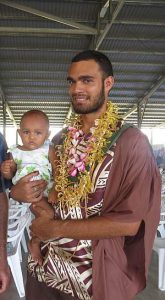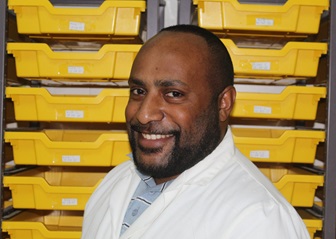
In 2014, delegates at the annual RAM Conference agreed that RAM should support research on malaria by providing a scholarship for a qualified post graduate student, from PNG, Solomon Islands, Vanuatu or Timor Leste, to undertake PhD studies in Australia and upon completion return to their home country with heir acquired expertise.
In close consultation with the Australian Institute for Tropical Health and Medicine (AITHM) based at James Cook University (JCU) in Cairns applications were sought for such a student to study any applied aspect of the transmission and control of a vector-borne disease.
Appropriate research topics may be in fields including vector control, public health, epidemiology, environmental management for control of vectors, and drug-based interventions. The scholarship covers the candidate’s tuition fees, living allowance and overseas health insurance for the duration of the scholarship. Support for developing the terms and structure of the scholarship and the research was also provided by the Walter and Elisa Hall Institute for Medical research in Melbourne
In 2015, following a rigorous selection process, the successful applicant was Mr Edgar Pollard MSc. From the Solomon Islands who studied under the supervision of Prof. Tom Burkot of AITHM. His research was topic was “Understanding mosquito flight to maximize malaria and dengue control by insecticide impregnated barriers.” After four years of intensive work, Edgar Pollard graduated in 2019. Dr. Edgar’s publications are included (please link to his PhD publications).
Today, Dr Edgar Pollard works for the World Health Organisation (WHO) in Honiara, and in 2021, Edgar assisted RAM Australia and RAM Solomon Islands to develop the Active Case Detection (ACD) malaria surveillance project for implementation in Mataniko settlement. However, due to the COVID-19 pandemic, implementation of the ACD project is delayed.
You can download his papers below.
RAM PhD Stipend Award
In 2021, RAM offered a PhD Stipend Award to Lincoln Timinao, a PhD student from Papua New Guinea who was studying at James Cook University (JCU). Lincoln works at the PNG Institute of Medical Research (PNGIMR) doing my research, and will have a position to return to following completion of his study.

Lincoln’s research aims to investigate the transmission of malaria from symptomatic and asymptomatic individuals to An. farauti mosquitos by conducting direct membrane feeding experiments and direct skin feeding experiments.
The PNGIMR has established an insectary where they rear An. farauti mosquitos and Lincoln has adapted and set up a membrane feeding assay to infect their colony mosquitoes with malaria parasites from infected individuals. They had more success with infecting our mosquitoes with P. vivax which puts PNGIMR in a unique position to test potential vaccine or antimalarials that can inhibit transmission as it is currently quite difficult to grow these parasites in a lab setting. Lincoln has submitted a manuscript for publication regarding this work (Frontiers). He has also optimized the conditions that influences the feeding rate of the mosquitoes and have increased the feeding rate of the mosquitoes. This work has been published as well (Parasites and Vectors).

Lincoln was recently awarded a student prize for a 3-minute presentation he did for the 8th International Conference on Plasmodium vivax Research (ICPvR) 2022. The above is a cartoon representation of his 3-minute talk.
Read his papers below:
Infectivity of Symptomatic Malaria Patients to Anopheles farauti Colony Mosquitoes in Papua New Guinea – https://pubmed.ncbi.nlm.nih.gov/35004348/
Optimization of the feeding rate of Anopheles farauti s.s. colony mosquitoes in direct membrane feeding assays – https://pubmed.ncbi.nlm.nih.gov/34233734/
Using qPCR to compare the detection of Plasmodium vivax oocysts and sporozoites in Anopheles farauti mosquitoes between two DNA extraction methods – https://www.medrxiv.org/content/10.1101/2022.11.15.22282365v1 (preprint)
